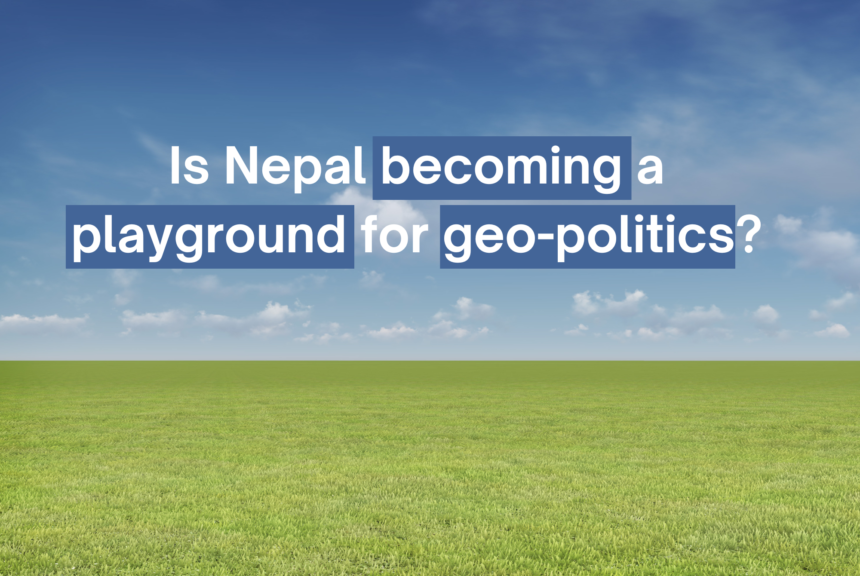The discourse surrounding Nepal’s portrayal as a geopolitical playground has gained significant traction, with political figures, analysts, and media outlets all contributing to its narrative. This depiction suggests a concerted effort by powerful states to exert their influence over Nepal’s affairs, potentially to the detriment of its sovereignty.
While initially confined to regional players, such as neighboring countries, there are indications that this arena of influence is expanding to include Western powers. This shift raises questions about the evolving dynamics of Nepal’s international relations and the implications for its autonomy.
The narrative gains further complexity with Nepal’s involvement in initiatives like the US-led Millennium Challenge Corporation and the China-led Belt and Road Initiative. While the former has received parliamentary approval, progress on the latter remains in its infancy. This juxtaposition occurs against a backdrop of escalating tensions between the US and China, underscoring Nepal’s position as a focal point in broader geopolitical rivalries.
Amidst these developments, the question arises: Is Nepal emerging as a central battleground in South Asia’s global power struggle? Or is the apparent susceptibility to external influences a reflection of shortcomings in Nepali leadership, diplomacy, and state capacity? This debate underscores the need for a nuanced understanding of Nepal’s geopolitical positioning and the challenges it faces in navigating its place in the international arena.

